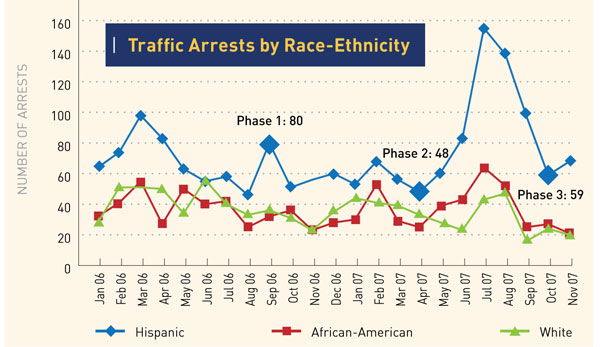The Department of Homeland Security recently expanded its Secure Communities program to all counties in Arizona. However, DHS’s commitment to expanding the program comes at a time when opposition to Secure Communities is growing among civil liberties groups.
The ICE Access program allows US Immigration and Customs Enforcement (ICE) to use fingerprints to identify high-level criminal aliens who come in contact with law enforcement.
Victoria Lopez is an immigration attorney working with the ACLU of Arizona. She told Arizona Public Media that the announced goal of the initiative is to improve public safety by identifying the most dangerous criminals and potential threats to homeland security, and removing them from the United States. “However, what the numbers actually do show is that 79 percent of the people deported under the Secure Communities program in just over a year were non-criminals,” she said. “Or they were arrested for very low-level offenses, including misdemeanors or traffic offenses.”
Lopez says that arrests for these low-level crimes are typically not enough to trigger automatic deportation under current immigration law, and the expedited deportation process often forces individuals to give up their right to an immigration hearing. She also points to studies on similar ICE Access programs, such as the Criminal Alien Program, that raise concerns over the effect they have on law enforcement agencies. A study by the Warren Institute titled The C.A.P. Effect: Racial Profiling in the ICE Criminal Alien Program found “strong evidence to support claims that police engaged in racial profiling of Hispanics in order to filter them through the CAP screening system.” It concludes that "the Criminal Alien Program tacitly encourages local police to arrest Hispanics for petty offenses."
 VIEW LARGER Warren Institute Study on ICE Access program indicates a sharp upward trend in Hispanic arrests for “Class-C” misdemeanor offenses during Phase 2 of CAP implementation suggests that racial profiling was most aggressive in the period between April and September of 2007.
VIEW LARGER Warren Institute Study on ICE Access program indicates a sharp upward trend in Hispanic arrests for “Class-C” misdemeanor offenses during Phase 2 of CAP implementation suggests that racial profiling was most aggressive in the period between April and September of 2007.
Lopez says that Secure Communities and the Criminal Alien Program are variations of the same theme, and “ICE Access programs seem to show, over and over again, that there is a significantly higher probability of racial profiling and the possibility of pretextual stops and arrests in the communities that participate.”
According to DHS, Secure Communities has identified more than 262,900 aliens who have been charged with or convicted of criminal offenses, including more than 39,000 charged with or convicted of major violent or drug offenses. Plans are in place to expand the program to every law enforcement jurisdiction in the country by 2013.



By submitting your comments, you hereby give AZPM the right to post your comments and potentially use them in any other form of media operated by this institution.